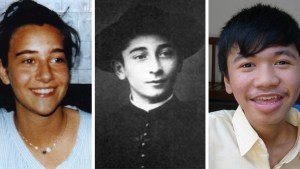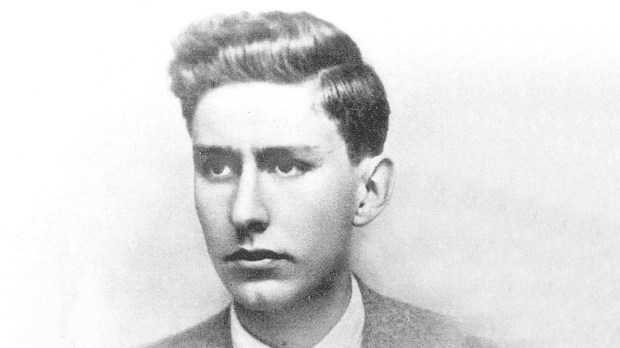Joan (John, as he was called by his family) Roig Diggle, killed “in odium fidei” during the Spanish Civil War, was beatified November 7, at a Mass celebrated by Cardinal Juan José Omella y Omella, archbishop of Barcelona. The cardinal referred to the 19-year-old martyr as “a witness of tenderness.”
Blessed Joan Roig Diggle is among the almost 2,000 martyrs of the Spanish Civil War publicly venerated in the Church. In the violent conflict that racked the Iberian Peninsula between 1936 and 1939, hundreds of lay men and women – mothers and fathers, young and old – along with dozens of priests and nuns, and bishops, were killed out of “hatred of the faith.”
An intense spiritual life
Joan Roig Diggle was born on May 12, 1917, in Barcelona. Due to economic problems, in 1934, together with his family, he had to move to the town of El Masnou where, in addition to working to contribute to the family budget, he joined the Federación de Jóvenes Cristianos de Cataluña (Federation of Christian Youth of Cataluña), becoming director of the group.
Despite the many commitments of work and study and his poor health, he maintained an intense spiritual life: daily participation in the Holy Mass, meditation, and practices of piety, as well as living out the social doctrine of the Church.
The companions and priests who knew him in those years recalled a young man of singular virtues and great interior transparency, with an intense spiritual life and a clear awareness of social problems and the responsibility of the laity in the life of society.
“God is with me”
In July 1936, the meeting room of the Federación de Jóvenes Cristianos was destroyed and the church was set on fire.
In the coming weeks, in the midst of the danger and conflict, the young man’s spiritual director entrusted him with the Eucharist — various consecrated Hosts — so that he could distribute Communion to the various Christian families. On the day of his assassination, in a visit to a Christian family, he told them, “I’m not afraid of anything. I have the Beloved with me.”
On the night between September 11 and 12, militiamen arrived to Joan’s home. When his mother heard their arrival and the forceful knocking on the door, she distracted them long enough for Joan to consume the Hosts he still had, so they would not be profaned.
The militiamen took Roig Diggle from his home. His last words to his mother, in English, were “God is with me.”
A few hours later, Joan Roig Diggle was taken to the cemetery of Santa Coloma de Gramanet (Spain). The militia had determined to execute him. When they pointed their rifles at him, he uttered words of forgiveness for his executioners: “May God forgive you, and I forgive you.” The moment they shot, he cried out: “Long live Christ the King!”
Blessed Joan Roig Diggle was only 19 when he gave his life for Christ.

Read more:
This martyr told us: Get your petitions ready because I’ll be your best intercessor
A model for Christian life
In his homily for the Mass of Beatification, Cardinal Omella asked what we can learn from Blessed Joan Roig’s witness. “Joan Roig can be a model of Christian life for both the young people and adults of our society,” he said. “His testimony can awaken in us the desire to follow Christ with joy and generosity.”
Cardinal Omella said, “The deep friendship with God, prayer, the Eucharistic life and apostolic ardor” of Blessed Joan Roig, “will unite us more to Christ and to His Gospel.”
He concluded his homily with a challenge: “Let us dare, like Joan, to be well grounded in Christ, in order to offer the love of the Triune God to our brothers and sisters. Let us be, as today’s Gospel proclaims, good seed that bears abundant fruit.”
And he reminded the faithful, “Jesus will never leave us. He will always be at our side to share with us His Risen life.”

Read more:
8 Remarkable saintly teens to inspire your family

